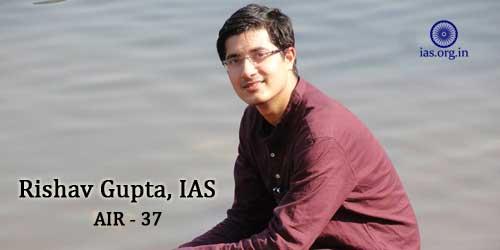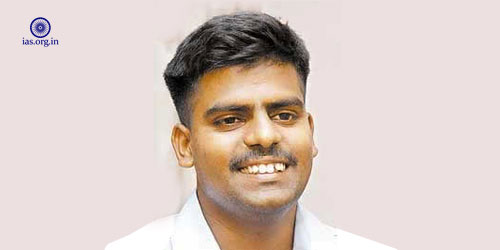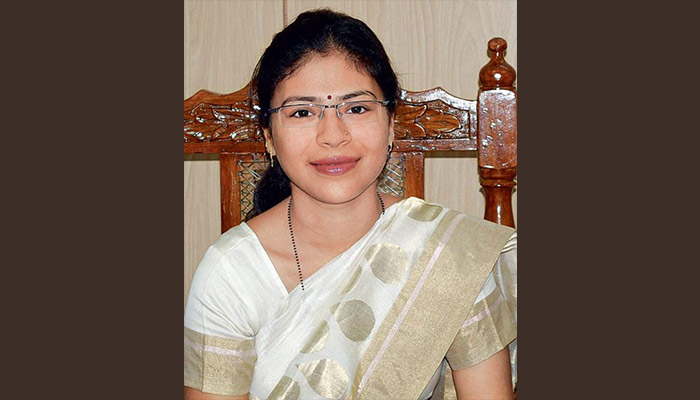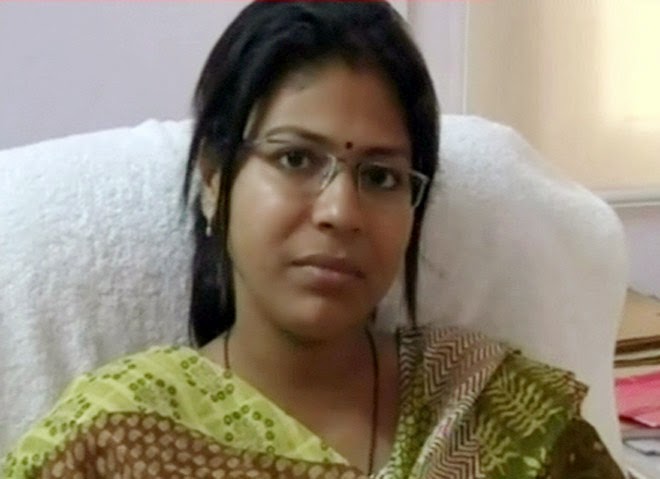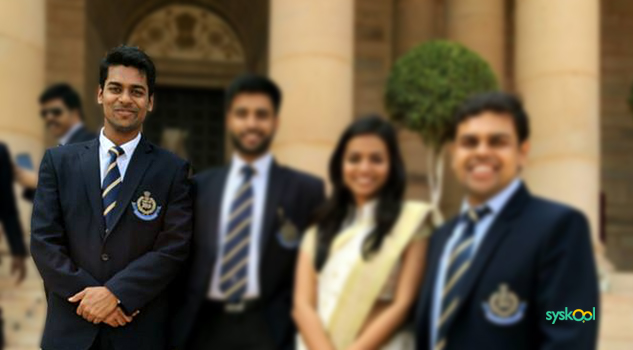Mutyala Raju Revu, was an Indian Police Service probationer hailing from Andhra Pradesh, when he topped the Union Public Service Commission Civil Services Examination 2006 in the country to become an IAS. He joined the Andhra Pradesh cadre of the Indian Administrative Service.
IAS-2006-07 Topper Mutyala Raju Revu’s strong determination and innate desire which proved his worth and mettle by doing unremitting hard work and withholding unshakable determination by cracking UPSC examination. His conviction in selfless service and his clear principles gave him enough courage and confidence and made him do extraordinary.
Family Background
Born in a farmer’s family, Revu hails from Chinagollapalem village in West Godavari district of Andhra Pradesh. Raju’s mother Chintamani is a house maker. Raju’s father Narasimha Murthy and his two elder brothers are also into agriculture and earn their livelihood by farming.
Optional Subject
He opted for Electrical Engineering and Mathematics as his optional paper because he has these subjects as his background in Graduation and Post Graduation.
Have a look: Meet Atul Vikas Kulkarni, IPS – Inspirational Story
Desire of Becoming IAS
Death of his sister and six friends in his remote Chinnagollapalem village lacking transportation facility and a motto to empower those villages which are remote and lack the basic amenities and one of them being his own village motivated him to take up the civil services examination. Mutyala Raju Revu says,“My sister and others could not get medical attention in time as my village has no transportation facility and is cut off by Godavari and Krishna rivers”.
It was then that he took an oath to serve mankind and help those areas which are a total cut from the rest of the country and also are short of basic necessities like proper transportational, educational facilities, health services etc.
Educational Background of Mutyala Raju Revu
Raju passed 10th standard from the government school close to his village. Being the state topper in Common Entrance Examination for Polytechnic, Raju pursued his studies at Mullapudi Memorial Polytechnic College in Tanuku in the same region.
Raju secured first rank in Engineering Common Entrance Test (ECET) in 1998, did B. Tech from National Institute of Technology, Warangal. He secured third place in GATE-2002 and did Masters in Engineering (ME) in Signal Processing from Indian Institute of Sciences, Bangalore.
He secured first rank in the Indian Engineering Services-2003 conducted by UPSC and took up a job as a Railway Engineer for 2 years.
Mutyala Raju Revu then made it in the year 2005, by being selected as an IPS officer under Indian Police Services.
Must Read: Meet IAS Topper Dr. Bharti Dixit – Rank 5 in first attempt
Attempt
It was Mutyala’s third attempt to clear Civil Services Examination.
A man of focus, persistent efforts and strong determination could not satiate himself, instead he worked incessantly hard to realize his dreams and finally in the year 2006-07, all his efforts and labour was awarded when he topped the Civil Service Examination which he always dreamt off.
Secret of Success
“There is nothing which a man can’t achieve. You have to believe in yourself, be positive and prepare to achieve the goal,” he said sharing the secret of his success. To face the interview for Civil Services, Mutyala Raju affirmed that one should always be honest, optimistic and confident.
Mutyala Raju kept his morale high up by looking up to the toppers of the previously held Civil Service examination and by reading loads of motivating and enriching books and one of them being Vivekananda. He was and still is a staunch believer of Vivekananda’s one of the sayings, stating – “Arise, Awake and Stop not till the goal is reached”.
A remote village celebrates its son’s tryst with glory So what if Chinagollapalem looks like a village caught in a time warp, it produced an IAS topper, who topped this year’s IAS examination, is from this predominantly fishermen’s village.
Don’t Miss: Meet Renu Raj IAS Topper – A doctor got rank 2 in first attempt
UPSC Board Interview Questions of IAS Topper Mutyala Raju Revu
Raju: May I come in Sir?
Chairman: Yes, please.
Raju: Good morning, Sir. Good morning, Madam. Good morning, Sirs.: You are Mr…
Raju: (Still in standing position), Muthyala Raju Revu Sir.
(Chairman is writing something. Other members are keenly watching the candidate.)
Member 2: Please take your seat.
Raju: Thank you, sir.
Chairman: Mr. Revu, You did B.Tech from REC Warangal, ME from IISc, Bangalore. But why did you do diploma?
Raju: Sir, After completion of my 10th class, based on my financial background, my father joined me in polytechnic. After completion of polytechnic, we do get jobs. Also, since I will get scholarship, the amount of money spent on me is less.
Chairman: That means you will get job after diploma.
Raju: Yes Sir, I got a private job. Company is Cain energy limited.
Chairman: Then, why did you join B.Tech?
Raju: Sir, After completion of my diploma, I wrote ECET and I got state 1st rank. So I convinced my father that I will join REC which is a premier Engineering institute in our state.
Chairman: Then, you joined ME because your father insisted on that?
Raju: No Sir, It is based on my project guide’s suggestion. Sir, infact there are two streams to enter into B.Tech. One through EAMCET after Intermediate and other is through ECET. After ECET…
Chairman: What question I have asked?
Raju: Sorry Sir, you have asked me why I joined ME after B.Tech.
Chairman: OK. Then stick on to the question.
Raju: Sir, I am explaining it.
Chairman: Be specific.
Raju: OK sir, during my final year I got all India rank 3 in Gate. My guide on knowing this result suggested me to join IISc. He further told that this is the golden opportunity for me. ‘If you miss it you will not get it again!’ he told sir. Then, I informed about my career option as civil services. He then convinced me by saying that I can write civil services after M.E. also.
Chairman: That means you are preparing for civil services while you are in IISc?
Raju: I beg to differ with you sir. I started my preparation only after completion of M.E.
Chairman: You have written that you joined Railways in September 2004. That is of which exam?
Raju: Sir, This is based on IES-2003.
Chairman: That means you are in IISc.
Raju: Sir, I completed my second semester at that time.
Chairman: That means you have prepared for IES in IISc.
Raju: Sir, I have given IES in my own background i.e., Electrical Engineering. Hence I need not prepare much for this exam. I just gave the exam.
Chairman: For how many years you are in Railways?
Raju: Sir, I joined Railways on September 2004. Then I took leave for 1 year, i.e., leave on loss of pay.
Chairman: What did you do in that year?
Raju: Sir, I have prepared for this exam.
Chairman: How many months you are in Railways?
Raju: Sir, roughly 5 months.
Chairman: That means you are in Railways till February.
Raju: Sir, I am in Railways till the result of civil services exam 2005 was out. I was given leave for interview preparation in March.
Chairman: Then what did you do after the declaration of the result?
Raju: Sir, Once the result of out, I came to know that I will get IPS. So, I convinced my director for leave to appear civil services again. My director gave me leave.
Chairman: When did you join IPS?
Raju: Sir, I joined IPS on December 18, 2006.
Chairman: Which part of training you missed?
Raju: Sir, I missed foundation training in Mussorie. At SVPNPA, training started on December 18, 2006. So, I haven’t missed any training at Hyderabad.
Chairman: How many days you have taken leave for interview?
Raju: Sir, 4 days.
Member 2: How was your IPS training?
Raju: Sir, training is good and we are enjoying every aspect of training.
Member 2: What are you learning in training?
Raju: Sir, our training is divided into two parts. Indoor and outdoor. In indoor, we have subjects like police in modern India, criminology and law subjects like IE Act, CrPC, IPC and other subjects.
Member 2: You are in IPS for 4 months. So I can ask some questions.
Raju: Yes, sir.
Member 2: do you aware that the confession admitted to police is not allowed as witness. Why?
Raju: Yes sir. Confession admitted to police is not allowed as witness. Since there is always a possibility of getting the confession in the way the police like, law doesn’t allow it.
Member 2: What is Res gestae?
Raju: Sir, All the circumstances leading to the same transaction are allowable as evidence.
Member 2: You are on the line. Could you explain more?
Raju: (after 2-3 seconds), If some people wanted to commit dacoity and in the process if they theft a vehicle, eventhough theft of vehicle is not connected with dacoity but it is admissible as it forms the circumstance leading to dacoity.
Member 2: Could you tell me the section which deals with Res gestae?
Raju: Sorry sir, I could not remember the exact section.
Member 2: Then how sections you were taught in IE Act?
Raju:Sir, In our academy our sirs are not teaching according to sections. They are teaching the sections which are more useful for the police at first.
Member 2: Do you aware of RTI?
Raju: Yes. Sir. It is Right to Information Act.
Member 2: What are the provisions in RTI?
Raju: Sir, According to provisions of RTI, every government department has to nominate one officer as information commissioner to give information about duties, responsibilities and functions of various officers working in those departments…
Member 2: Then what is the benefit to common man?
Raju: Sir, Common man can know the functions, duties & responsibilities of various officers. They can know the status of their applications. This also increases transparency and accountability of officers. Hence reduces corruption.
Member 2: How can you say that people will get required information?
Raju: Sir, There is a provision in RTI that any one who refuses to give information or delays 30 days for giving information, they are liable for cut in salary.
Member 2: How much salary cut?
Raju: Sir, I think it is 250 Rs./ day.
Member 2: It is not cut from salary. It is separately cut.
Raju: Thank you Sir.
Member 2: Can you tell me what is the maximum limit?
Raju: Sorry sir, I don’t know.
Chairman: Your hobbies are meditation, motivating others and Indian Mythology. Don’t you think that all are inward looking?
Raju: Sir, Whenever possible I play cricket in addition my hobbies, which is a team game.
Member 2: Tell me which countries will reach final in the present world cup?
Raju: Sir, I think Australia and Srilanka.
Member 2: Already two countries reached semifinals i.e., Sri Lanka & Newzealand. What do you think about other two?
Raju: Sir, I beg to differ with you. Actually three countries i.e., Srilanka, New Zealand and Australia reached semifinals. 4th team depends on the outcome of the today’s match between England & South Africa.
Member 2: Do you know about fly ash?
Raju: Sir, Thermal power stations produce fly ash while generating electrical power.
Member 2: Which state is using it more? Definitely it is not Haryana, My own state.
Raju: Sorry Sir, I don’t know.
Member 3: (X-A) (X-B) has highest X power of 2. Do you agree?
Raju: Yes, Sir.
Member 3: (X-A) (X-B) (X-C) has highest X power…
Raju:3, Sir.
Member 3: Then, tell me. What is the answer for (X-A) (X-B)…. (X-Z).
Raju: (after 3-4 seconds), It must be Zero. Sir, because of the presence of the term (X-X).
Member 3: Whom do you think a greatest mathematician of all times?
Raju: Sir, Srinivasa Ramanujan, because even though he lived for only 33 years, he contributed more to mathematics in the areas like Numerical methods, Solution of algebraic equations, number theory like prime numbers etc.
Member 3: Can you tell me the formula for prime numbers?
Raju: Sir, exactly I don’t know but recently IIT, Kanpur professor along with his students wrote a software program which gives whether a number is prime or not within less time.
Member 3: You are an electrical engineer. Tell me where prime numbers are used?
Raju: Sir, they are used in coding.
Member 3: I am asking a question in your engineering only. Tell me how prime numbers are used in coding?
Raju: Sir, exactly I don’t know. But to the best of my knowledge, if the code length is prime, decoding and encoding are easy.
Member 3: You are on the line, but not exact answer.
Member 1: Your hobbies are meditation, motivating others and Indian Mythology. What you do in motivation?
Raju: Madam, many of classmates and Juniors came to me for clearing their doubts in subjects as I am the toper of my class. I usually listen to their problems regarding their understanding of concepts as many have problems either in one or many subjects. I tell them that every subject is easy if knew the concepts clear and we should like the subject what we are studying…
Madam: Do your response same for all?
Raju: Madam, I usually spend more time with those who are very much lagging. I take classes to clear their doubts.
Madam: Then do you call it motivation or strategic learning?
Raju: Madam, strategic learning may be the correct term.
Madam: What is the difference between these two?
Raju: Madam, motivation is a general term which includes not only academic motivation but also others like psychological, etc., Madam, I don’t know exactly the meaning of strategic learning.
Madam: Which books you read in Indian Mythology?
Raju: Madam, I read Ramayana and Mahabharata.
Madam: Since your hobbies are motivating others and Indian Mythology, tell me how Krishna motivated Arjuna?
Raju: Madam, When Arjuna refused to fight with friends, teachers, Krishna told him that it is the duty of the king to protect Dharma and fight wars for protecting it. We should not move away from our duty. Since soul is immortal and of which is born, death is certain, of which death happened, birth is certain. Hence you should not think that you are committing crime. Also he motivated him by saying that we should do our work only. We should not think about the results of our actions. Otherwise, attachment to the results will occur which is a major reason for unhappiness.
Madam: Do you practise it?
Raju: Madam, It is very difficult to practise.
Madam: Why?
Raju: Madam, for example, if we are about to play a cricket match, we will think about the winning of the match which is actually the result of the playing that match.
Madam: One last question. What kind of training our team got during our last year world cup?
Raju: Madam, exactly I am not able to recollect it. But it is like we can do it this time
Madam: Sorry, It is not last year world cup but it is 2003 world cup. The team was given psychological training.
Raju: Yes, Madam
Member 4: You studied your B.Tech. from REC Warangal and M.E. from IISc Bangalore. Do you proud of your institutions like IISc?
Raju: Sir, I am proud that I have studied in a great institution like IISc, which according UNESCO survey conducted in 1997 was in 18th place among world universities. Recently a Chinese university conducted a survey in which IISc was placed at around 250th position.
Member 4: Do you think that 250th position is a good position?
Raju: Sir, even though it is not a good position, the position depended on the parameters they have taken into consideration like no. of Nobel laureates present, no. of research papers presented, etc.
Member 4: Who are Nobel laureate present in IISc?
Raju: Sir, now there is no Nobel laureate in IISc. Earlier Sir C.V. Raman worked in IISc. Now, there are two internationally reputed professors working there.
Member 4: Last year government proposed to stop B.Tech entry into IITs. Do you support that?
Raju: Sir, I support it. Sir, due to hectic schedule, the professors of IITs are not able to concentrate much on research. Once the B. Tech entry is stopped, they will get more time for research and quality of research will increase.
Member 4: Don’t you think the quality of B.Tech students will reduce as IITs are known for better professors?
Raju: Sir, those students who are earlier eligible for entry into IITs, they will join NITs. Since they are the core students I don’t think the quality will reduce. But the professors in other institutes should get sufficient training to reach the level of IIT professors.
Member 4: You agree to that proposal. But the government has withdrawn the proposal due to very good argument against it. Can you tell me?
Raju: Sorry sir, I don’t know.
Member 4: What do you think is responsible for reduction in research?
Raju: Sir, IISc is not able to retain those students who completed M.E. and other courses there. One reason is brain drain, Sir. Second one is that research is not attractive in India, Sir. For example, in our batch out of 230 students who completed M.E. only 2 joined for Ph.D. in IISc. At the end of our M.E. we got campus placements. The minimum salary is around 6 lakhs/ annum. It is attracting most of us. Those who are really interested in research, they are going abroad as they will get more money and research is attractive there. Here, a Ph.D. student gets 12,000 – 15,000 Rs per month. Also material considerations have risen these days, sir. We have to include some compulsory courses in morale & ethics to stop this.
Member 4: Instead of choosing job or research, why did you choose services as career option?
Raju: Sir, The incident that took place in my village in November 2000, when I am in 3rd year of B.Tech, has changed my career options. Nearby Engineering college students came to our village for picnic as our village has excellent beach. 7 of them drowned in the Bay of Bengal and all of them has taken sand into their lungs in addition to water. Since our village is an island, there are no transportation, medical & meager educational facilities, it took 2 hours to reach nearest town which is 16 Km away from my village. By that time, 6 out 7 were died, Sir.
Chairman:You are telling about an incident in your village. In that case who will respond first?
Raju: (3-4 seconds silence)
Chairman:Whether it is Block development officer, Doctor, or Police.
Raju: Sir, It is the police to respond first.
Chairman: Then, you are in IPS. Why did you come?
Raju: Sir, even for police it took 2 hours to reach that place as there is not enough transportation facilities.
Chairman: Thank you.
Raju: Thank you, Sir. Thank you, Madam. Thank you, Sirs.



